
Conférenciers invitésFabrice Odobel (Plénière) (Nantes Université, Laboratoire CEISAM) Titre : Chemical approaches for sunlight conversion into electricity and fuels Fabrice Odobel (1966) received his Ph.D. in 1994 at Strasbourg University under the supervision of Prof. Jean-Pierre Sauvage. After postdoctoral research with Prof. Ronald Breslow, Columbia University (New York), he joined CNRS as a full-time researcher in 1995. His research interests in CEISAM at Nantes University include the development of tailored molecular and hybrid materials for photovoltaic cells, artificial photosynthesis, and photodynamic therapy. A important aspect of the group activity is the dye chemistry and the synthesis of molecular systems for electronic and photonic properties. Thèmes de Recherche : solar energy conversion, dye sensitized solar cells, artificial photosynthesis, CO2 reduction, solar driven hydrogen evolution, solar fuel, molecular synthesis, catalysis Page web : https://ceisam.univ-nantes.fr/en/imf-team/ ___________________________________________________________________________________________
Jacky Even (Plénière) (INSA Rennes, Institut FOTON) Titre : Halide perovskites: a new class of semiconductors for low-cost photovoltaics and optoelectronics
Jacky Even is a physicist, professor at INSA Rennes engineering school and senior member of IUF. He is heading the simulation activity of FOTON Institute (CNRS UMR 6082) since 1999. He had a broad scientific activity dedicated to fundamental material studies, both theoretical and experimental, and connection to the development of semiconductor nanostructures and optoelectronic devices for green energy applications, communication technologies, light emitters and quantum optical sources. Thèmes de Recherche : Perovskite, solar cell, optoelectronic, semiconductor Page web : https://cv.hal.science/jacky-even ___________________________________________________________________________________________
Lucile Rutkowski (Keynote) (Institut de Physique de Rennes) Titre : Infrared frequency comb spectroscopy: laboratory astrophysics in the age of the JWST 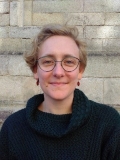 Lucile Rutkowski is a CNRS researcher at the Institute of Physics of Rennes since 2018 working within the Department of Molecular Physics. Before that she earned her PhD in physics at the university Claude Bernard Lyon1 in 2014 and worked as a postdoctoral fellow for 3 years in the group of Aleksandra Foltynowicz in Umea, Sweden, and one year in the group of Marco Marangoni at Politecnico di Milano, Italy. She specialized in developing precise and sensitive spectrometers based on pulsed laser sources for applied and metrology applications and is particularly involved in the animation of science along with Optica. In Rennes, she focuses her optical developments on physical-chemistry applications. Thèmes de Recherche : Fourier transform spectroscopy; cavity enhanced spectroscopy; optical frequency combs Page web : https://cv.hal.science/lucile-rutkowski# ___________________________________________________________________________________________ Helène Serier-Brault (Keynote) (Institut de Matériaux Nantes) Titre : The versatility of MOFs as a powerful tool to design luminescent thermometers 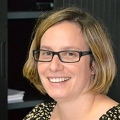 Hélène Brault is currently an Associate Professor in Chemistry at University of Nantes (Institut des Matériaux de Nantes Jean Rouxel, IMN-CNRS, Nantes, France). She obtained her Ph.D. degree in Inorganic Chemistry (2009) at University of Bordeaux (ICMCB, France), where she worked on opto-electronic properties of zinc oxide and fluoride. She obtained a Humbodlt fellow to join Martin Jansen’s group (Max-Planck Institute of Solid-State Chemistry, Stuttgart, Germany) in 2009 as postdoctoral researcher to investigate the role of high pressure on oxide containing lone-pair metals. Then, she joined the group of Dr. M. Mortier (LCMCP, Paris, France), to work on luminescent fluoride glasses. She became Associate Professor in Chemistry in 2011 at the University of Nantes, where she started working on various luminescent inorganic materials. Since 2016, her current research topics are mainly focused on lanthanide-based metal-organic frameworks for luminescence thermometry. Thèmes de Recherche : Lanthanide, metal-organic frameworks, luminescence thermometry Page web : https://www.cnrs-imn.fr/index.php/annuaire/item/brault-helene ___________________________________________________________________________________________ Christelle Gautier (Keynote) (MOLTECH Angers) Titre : Two-in-one method for simultaneous thickness and composition control of bifunctionalized surfaces obtained by aryldiazonium reduction Christelle Gautier is a CNRS researcher in MOLTECH-Anjou laboratory at the University of Angers (France). She received her PhD in physical chemistry from the University of Le Mans in 2006. After a first post-doctoral position in Montreal (Canada) during which she worked in surface functionalization by diazonium salts, and a second one in CEA Paris-Saclay (France), she was appointed CNRS Researcher (2010). Her research interests concern the elaboration of mixed (photo)electroactive organic layers on conductive surfaces and the study of the impact of the molecules confinement on their properties. Thèmes de Recherche : Surface functionalization, electroactive organic films, reduction of aryldiazonium salts, structure/properties relationships Page web : https://scholar.google.fr/citations?user=mIWH1UYAAAAJ&hl=fr ___________________________________________________________________________________________ Rémi Geiger (Keynote) (Entreprise WAINVAM-E) Titre : Development and commercialization of solutions based on the diamond sensor technology, for metrology, industrial control and biomedical diagnosis 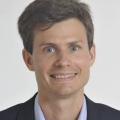
The innovative company WAINVAM-E was founded in April 2020. The company designs and commercializes diamond-based quantum sensor solutions for various applications, including industrial control (non-destructive detection of corrosion and defects in metals), navigation (autonomous guidance of civil and/or military vehicles) and in vitro biomedical diagnostics (sensitive measurement of biomarker concentrations for screening and early diagnosis assistance). Based in Ploemeur (Morbihan), the company has 41 employees of various cultures and experience, 180 m^2 of R&D laboratories (physics, biology, chemistry), has filed 11 patents, and has won several innovation competitions to support its technological development (French Tech grant, iLab competition, BPI deep tech program). WAINVAM-E's technological and commercial strategy is deliberately interdisciplinary and focused on the concrete applications of diamond sensor technology. WAINVAM-E is the only company in the world to design technological modules for all its applications, which feed each other. WAINVAM-E has already demonstrated the applicability of its solutions in non-destructive testing with industrial partners. WAINVAM-E is part of the French Quantum Plan, in its "sensors and metrology" section. The company is perfectly in line with France's strategy, which was recently reinforced, to invest in Deeptech through the DeepNum20 programs. It is the only French startup and the largest company in the world in this specific field of diamond sensors. WAINVAM-E offers a unique solution (made in France) to train university students and engineers at the Master level in quantum technology, with its WAINTEACH practical work in quantum physics. The presentation will focus on the core of the technology (NV diamonds) at the heart of the different products and services proposed by WAINVAM-E, highlighting the need for interdisciplinarity and the culture of innovation required to develop such offers. Thèmes de Recherche : Nitrogen Vacancy color center in diamond; quantum sensor ; magnetometry ; metrology; nondestructive testing ; in vitro diagnosis Page web : https://wainvam-e.com/about-us/ ___________________________________________________________________________________________ Cassandre Quinton (Keynote) (Institut des Sciences Chimiques Rennes) Titre : Nanohoops: from synthesis to charge transport properties 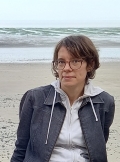 Dr Cassandre Quinton is a CNRS researcher working in the field of pi-conjugated materials (nanohoops, bridged oligophenylenes, etc). She received her Ph.D. in Chemistry from the Ecole Normale Supérieure de Cachan. After that, she obtained a postdoctoral fellowship from the Japan Society for the Promotion of Science to conduct her research at the Nara Institute of Science and Technology. In 2016, she was awarded a Marie Skłodowska-Curie Individual Fellowship to start her research on hoop-shaped pi-conjugated macrocycles, i.e. nanohoops, at the University of Rennes 1. In 2018, she joined the CNRS. Her current molecules of interest are cyclic bridged oligo-para-phenylenes. Thèmes de Recherche : Nanohoop, pi-conjugated macrocycle, oligo-para-phenylene, structure-properties relationship Page web : https://iscr.univ-rennes.fr/cassandre-quinton ___________________________________________________________________________________________ François Peaudecerf (Keynote) (Institut de Physique de Rennes) Titre : Wall entrapment enhances bacterial chemotactic response to deposited aerosols in the microlayer 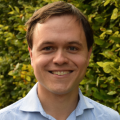 François Peaudecerf holds a junior professor chair and is working on biophysical problems linked to microbial dynamics in the environment. He received his Ph.D. in Applied Mathematics and Theoretical Physics from the University of Cambridge (UK), on problems linked to microbial symbiosis. Thereafter he moved to ETH (Switzerland) with a Marie Skłodowska-Curie Individual Fellowship to work on microbial dynamics at interfaces in the aquatic environment. He joined the Université de Rennes at the end of 2022, on a junior professor chair, with the project to investigate the impact of soil bacteria and the surfactants they produce on microscale water dynamics.
Thèmes de Recherche : microfluidics, air-water interface dynamics, environmental microbiology, microscopy Page web : https://ipr.univ-rennes.fr/interlocuteurs/francois-peaudecerf ___________________________________________________________________________________________ Maud Barré (Keynote) (Institut des Matériaux et Molécules du Mans) Titre : Development of solid electrolytes: structure, microstructure and properties relationships Maud Barré is Associate Professor at the Institute of Molecules and Materials of Le Mans (IMMM), Le Mans University, since 2009. Thèmes de Recherche : solid state electrolytes, high ionic conduction, crystal structure, sintering Page web : https://immm.univ-lemans.fr/fr/annuaire-acces-directs/pages-personnelles/maud-barre.html
|


